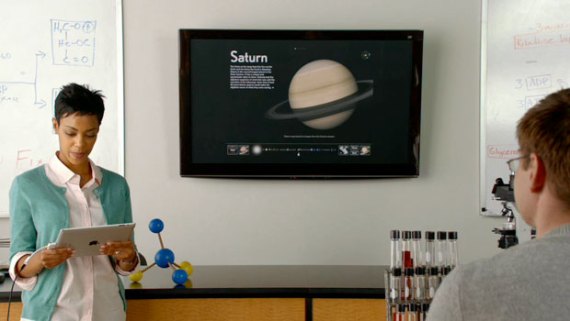I have been hearing more and more about these babies lately. I am currently in the process of convincing hubby that I ‘need’ one, so if you could give me some reasons why I should get one then that would be most helpful 🙂
So far I have mainly been working my plea from this angle –
- my students can use the iPad for their learning. There are so many amazing, PROPER educational apps out there. Not just the game apps. I have been attending a Master Class run by Tony Ryan these past few months and he has been blowing my mind with the ways you can successfully use technology like the iPad to enhance learning in your classroom. I love how he says, “the iPad can be either incredible for learning, or a disaster. Depends on how you use it”. Very true.
Here are some great apps for educators who have an iPad (which isn’t me…yet):
- all these ones
- top 10 apps for teachers and students
- and many, many more I don’t have time to hyperlink right now….maybe another post down the track when I have one in my hot little hands!
Check out this little boy who has just turned two years old! My oh my how the world is changing! Can you imagine how his little brain is developing compared to when we were this age?
Before I get commenters comparing playing outside to being inside on technology, I want to make it clear that I am a BIG believer in fresh air, making cubby houses and being outdoors! That was how I was brought up and I am pretty awesome 😉 But for those times when your kids are indoors – this iPad would be amazing! Just think about the types of jobs the children of today are going to have in the future. The skills they learn with technology are going to be extremely handy!
I came across the video you just watched of Bridger and his iPad from this website, LEARNBOOST. Here they have listed some benefits and drawbacks on 2-3yr olds using iPads:
Benefits
- Physical development. Toddler-age and preschool-age children often struggle to develop the small muscles in their hands. They work with play-dough, scribble, snap/zip/tie doll clothes and shoelaces, count with their fingers, and put together puzzles to get their little hands ready for all that the world requires of their fine motor skills.
- Pre-literacy skills. With games like PBS KIDS’s Super WHY! and interactive story books, children play with letter sounds, letter forms, rhymes, and words. These exercise a child’s phonemic awareness, which is one of the best predictors of reading and academic success in later life.
- Cognitive development. Puzzles are super important in children’s spacial reasoning, problem-solving, understanding of cause and effect, numbering and ordering, and countless other cognitive skills. Shape Builder is one puzzle app that I’ve worked with, and though it’s not wildly complex, it does enable really young children to explore with shapes while fine tuning their physical and mental skills.
- Social-emotional development. Animated games and prizes are immensely gratifying, which gives children (even those less than 2-years-old) a sense of success and accomplishment. Studies have linked these affirmations to more confidence and more intrinsic motivation down the road. Plus, if a child has siblings, parents are bound to step in and work on negotiation and sharing skills, even if just because iPads are expensive.
Drawbacks
- Instant gratification. It’s a give or take on this one. Children’s attention spans are brief at young ages. The colors, awards, sounds, and movements on the iPad affirm a short attention span with instant gratification. On the other hand, tiny children can sit and focus on the same game for minutes and even hours on the iPad.
- Near obsession. I nannied for a family with 3 children, ages 1 month, 21 months, and 3-years. The toddler’s first word was “iPad.” There was almost no motivation to play outside, imagine, paint, or get messy. The idea that this device could be so overwhelming as to limit a child’s desire and ability to pretend, is deeply unsettling. For more info on how dramatic play stimulates brain development, check out some scholarly articles on the subject.
- The technological parent. Socio-economic indicators may negate this drawback, since affluent families are both more likely to raise children who succeed in school and are more likely to be able to afford iPads. There’s no doubt though that it’s really easy to let an iPad “babysit” a child. Unlike Bridger’s father, who coaxes him through the learning process, if a parent simply sets a young child up with a game without any scaffolding or personal engagement, we may see more negative repercussions.
So other than the education point I am using with my husband so I can buy an iPad, what are some other reasons I need one? 😉


